#Durham University
Text
I just finished reading Fallen Thorns by Harvey Oliver Baxter, and I could not but help noticing some similarities to another beloved book with an aroace main character. Both Fallen Thorns and Loveless are set in Durham, England. The two main characters, Arlo and Georgia respectively, are first year students at Durham University and discover their aroace idenities during their time in Durham (and both during the winter, funny enough). That is where the similarities end, but I just found it hilarious that we have two aroace books set in the same town, college, basic backbone plot related to the main characters' sexual identities.
That being said, the two books are completely different plot-wise. Fallen Thorns is a paranormal story that gives me dark academia vibes, while Loveless is a contemporary coming of age plot. The former is much darker (with all the vampires, blood, and such) and has a different perspective of Durham. Arlo considers the natives of Durham and university students to be mostly stuck up. These people only care if you are rich, and you are nothing if you're not. Characters advise Arlo to not join any student societies due to the cliquey nature of them. Besides the peace Arlo finds in the empty streets and beauty of the town, we see Durham in a more negative light.
This is not the case with Loveless. Georgia and her friends joined the theatre and queer societies. They made friends easily, and you never got the impression that there are cliques there. The perspective of both the town and college was positive. The closest thing to a stuck up person would have to be Lloyd with his aphobia in the queer society. I just got a completely different interpretation of Durham from reading this book.
Anyway, I am not from England. I've never been there, even though I would like to one day. I just found this interesting as I read Fallen Thorns and thought I would share my thoughts. If anyone from Durham reads this, please share with me your thoughts on the town. I would love to know your perspective also.
With all that being said, I freaking loved Fallen Thorns. It is a solid 5/5 stars and has a great plot. The aroace representation was beyond accurate. I really saw myself in Arlo, and the ending left me believing that there would be a sequel. If there is one, I can't wait to read it.
#asexual#aroace#asexuality#aromantic#aromantism#asexual books#bookblr#loveless#fallen thorns#alice oseman#durham#durham university
7 notes
·
View notes
Text
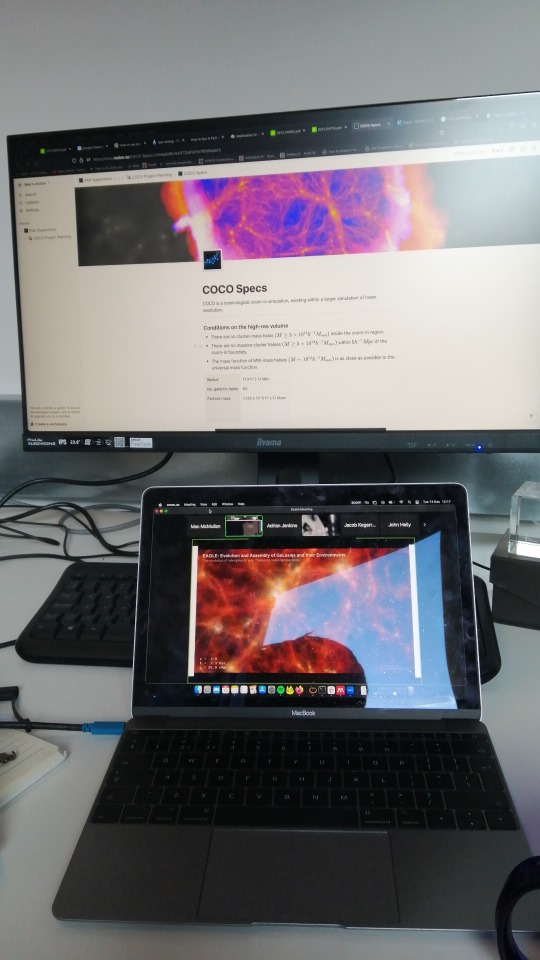
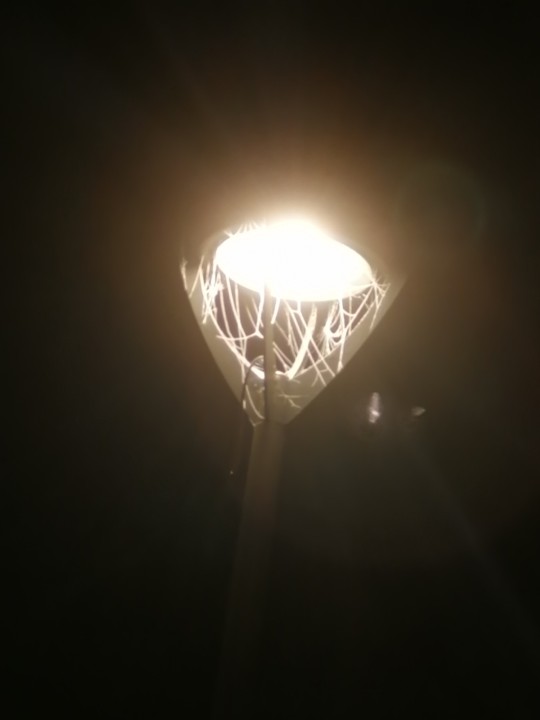
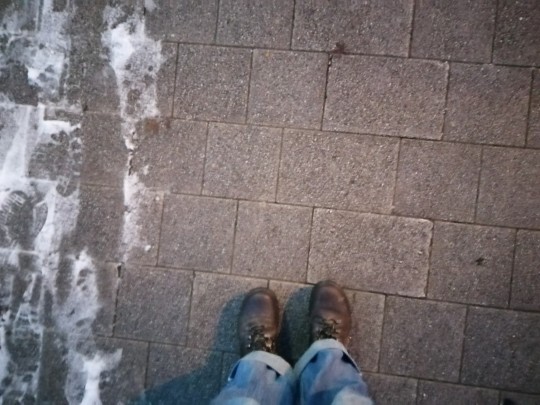
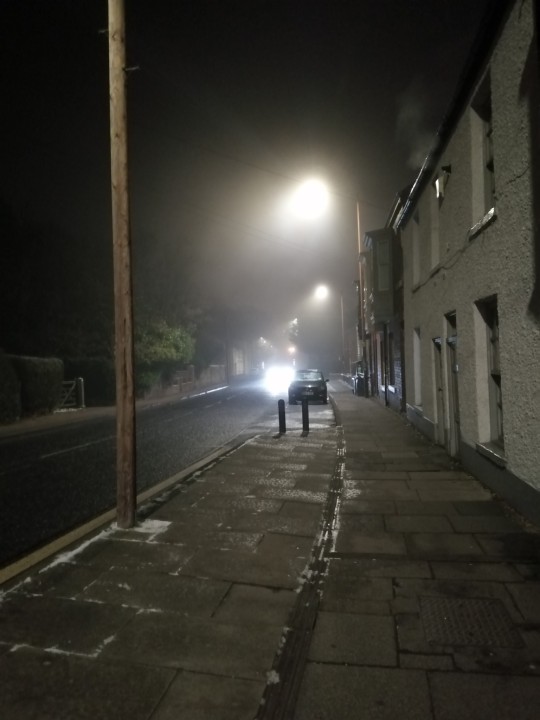
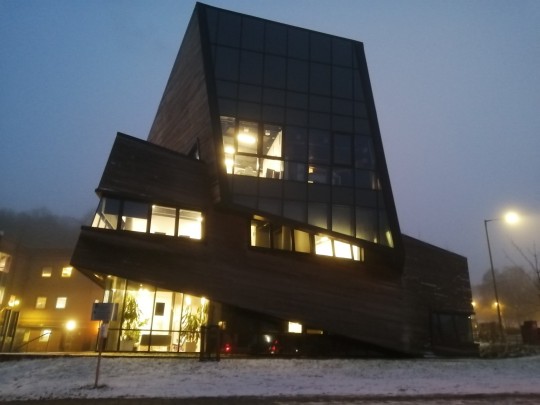
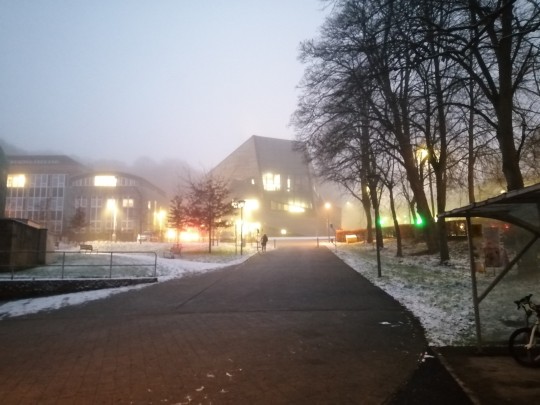
17.12.2022
You guys have no idea how utterly freezing and still my past week has been. I feel like I am inside the most beautiful painting.
#messyblr#mine#studyblr#physics#college#books & libraries#science#dark academia#physblr#dark academia aesthetic#stemblr#gradblr#student#studying#astrophysics#durham#Durham University
97 notes
·
View notes
Text

Inspired by @robbielewis and his brilliant ongoing series featuring a pictorial history of the Northeast, this is the first in an occasional series of posts on film, theatre and television luminaries with a strong personal or professional link with Northeast England, beginning with John Nightingale.
There doesn't appear to be a great deal of information available; he was apparently born in Burnley, Lancashire, in 1942, and attended St Cuthbert’s College, Durham University. He also spent several years with the National Youth Theatre, and while with the NYT made his television debut, which was noted by the Durham University paper, Palatinate, in 1964.

John Nightingale's highest profile role was in the BBC’s When the Boat Comes In, a gritty social and political drama set during the years after the Great War in the struggling Tyneside community of Gallowshields. Appearing in 39 episodes over 1976 and 77, he played the troubled but likeable Tom Seaton. It was a standout performance in the company of some very fine actors, including James Bolam, Susan Jameson, Edward Wilson, Jean Heywood, James Garbutt, Malcolm Terris, Ian Cullen, Madelaine Newton and Michelle Newell.
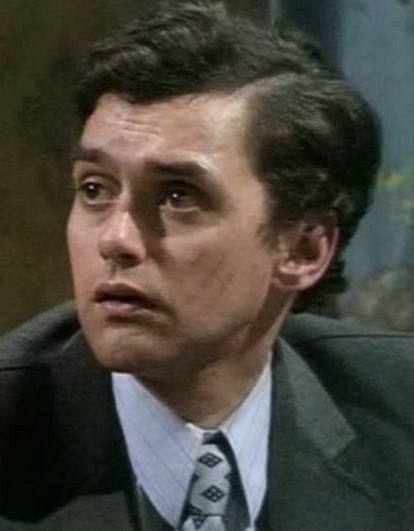
John Nightingale’s other television credits include appearances in Crown Court, in three episodes of Alan Plater’s dramatisation of the AJ Cronin novel, The Stars Look Down, the epic drama-documentary Fall of Eagles, and the Thames political drama, Bill Brand, as well as a handful of appearances in BBC television plays.
He passed away in 1980, aged just 37, from cancer. His challenging role in When the Boat Comes In demonstrated that he was one of the most gifted actors of his generation, and makes you wonder just what he could have achieved given the chance of a long life and career.
Thanks (again) to @robbielewis for a little additional history of Durham University.
#social history#working class history#british actors#british television#british theatre#national youth theatre#actors of the northeast#northeast england#durham university
8 notes
·
View notes
Text
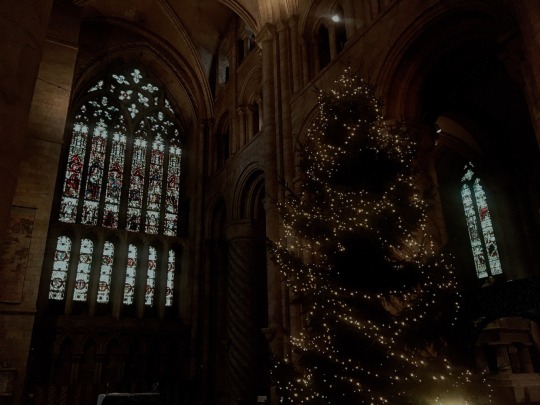

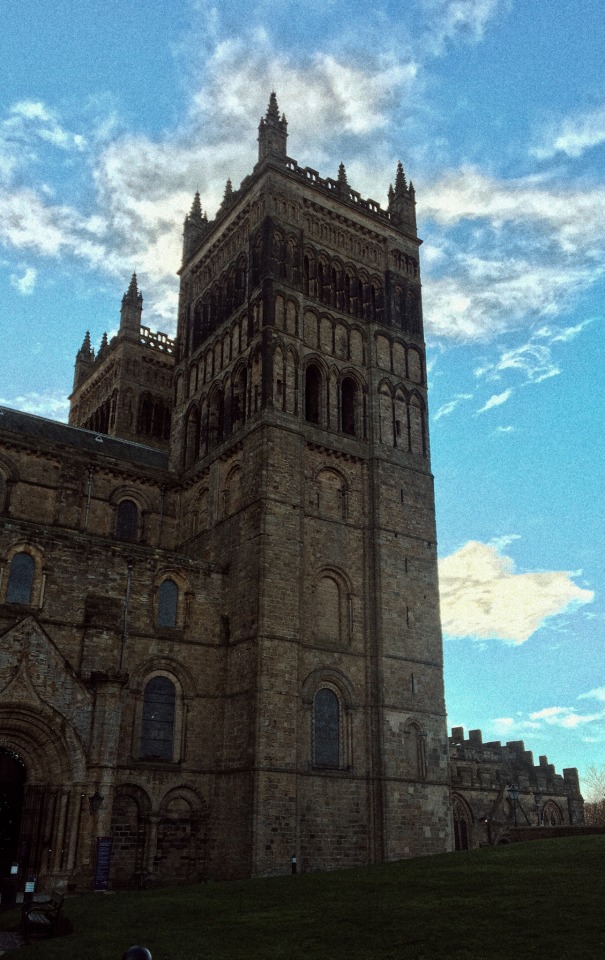
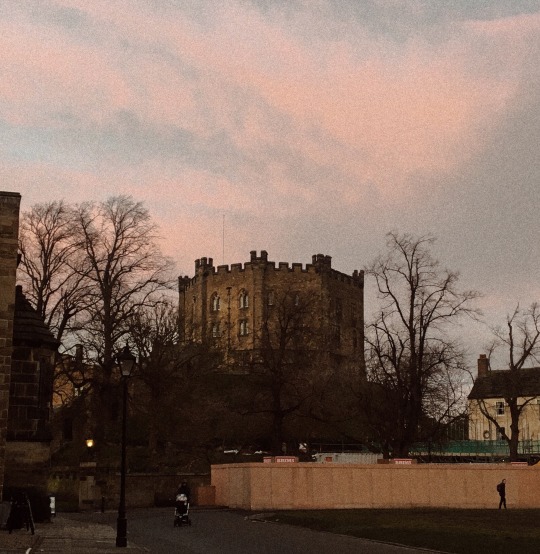
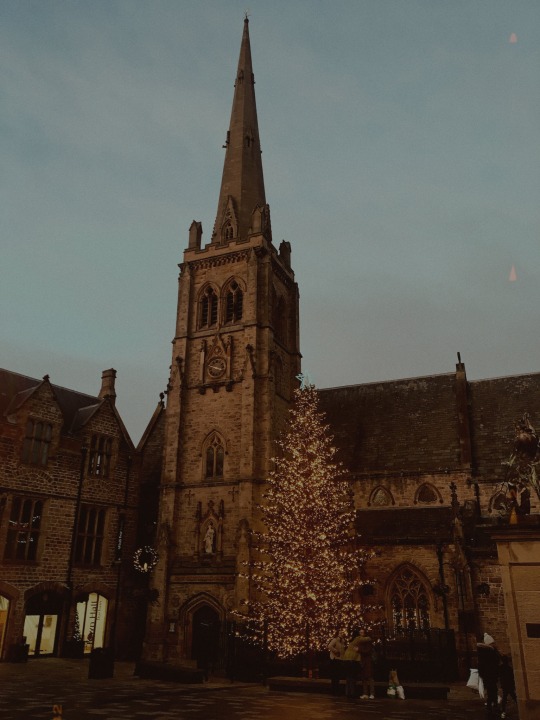
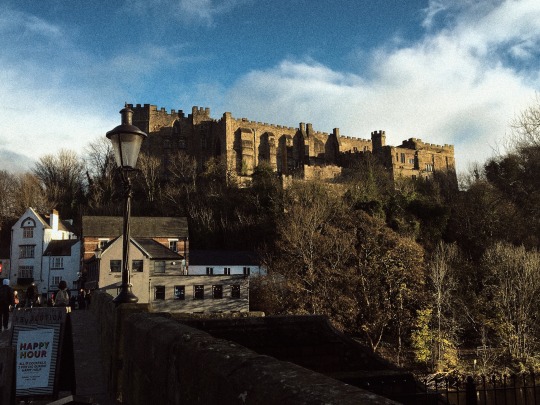
seeing durham cathedral again felt like visiting an old friend :) (8/12/22)
#cathedral#dark academia#durham#durham university#studyblr#medieval#medieval architecture#history#northern england#north east
14 notes
·
View notes
Text
Book Review – ‘Loveless’ (#10 Osemanverse) by Alice Oseman
Exploring the heart, and the different ways it can love.
Genre: Y/A, Contemporary, LGBTQIA+
No. of pages: 433
It was all sinking in. I’d never had a crush on anyone. No boys, no girls, not a single person I had ever met. What did that mean?
Georgia has never been in love, never kissed anyone, never even had a crush – but as a fanfic-obsessed romantic she’s sure she’ll find her person one…
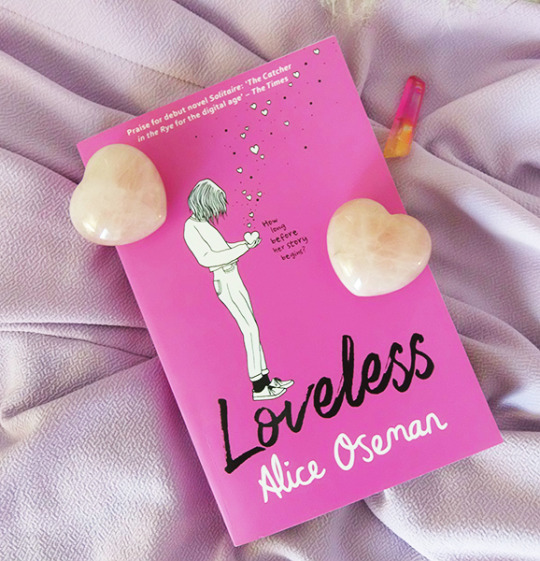
View On WordPress
#ace#Acting#Alice Oseman#amreading#aro#aromantic#asexual#bisexual#book#book review#Casey Carlisle#coming of age#coming out#contemporary#CritiqueCasey#Durham University#Fiction#found family#friendship#Georgia#GLBT#GLBTQIA+#identity#Jason#lesbian#loveislove#Loveless#Osemanverse#Pip#play
3 notes
·
View notes
Text
Durham University: A Comprehensive Overview of the Prestigious Institution
Durham University is a world-renowned institution located in the historic city of Durham, United Kingdom. Founded in 1832, Durham University is one of the oldest universities in the UK and has a reputation for academic excellence and research. In this article, we will provide a comprehensive overview of Durham University, including its history, academic programs, campus, and student life.
History
Durham University was founded by the Bishop of Durham, William van Mildert, in 1832. The university was established as a response to the growing need for higher education in the North East of England. Initially, the university consisted of just two colleges - University College and Durham College of Physical Science. However, over time, the university expanded and new colleges were added.
Academic Programs
Durham university of durham offers a wide range of undergraduate and postgraduate programs across a variety of disciplines. Some of the most popular undergraduate programs include Business, Law, Psychology, Engineering, and Computer Science. The university also offers a range of postgraduate programs, including Master's degrees and PhDs.
One of the unique features of Durham University is its collegiate system. The university is made up of 16 colleges, each with its own history, traditions, and character. Students are assigned to a college when they enrol, and each college provides academic and pastoral support to its students. The collegiate system also means that students have access to a wide range of social, cultural, and sporting activities.
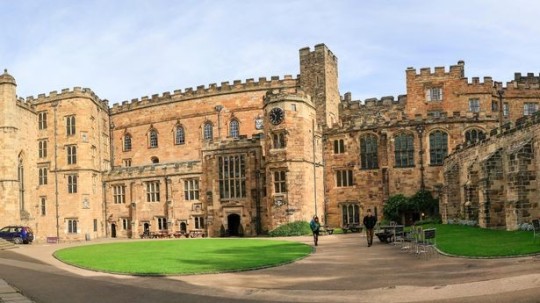
Campus
Durham University is situated in the heart of the city of Durham, which is located in the North East of England. The university's main campus is spread across three sites - Durham City, Queen's Campus in Stockton-on-Tees, and the Sir Peter Ustinov College in Durham. The Durham City campus is the largest and most historic, and is home to the majority of the university's academic departments.
The Durham City campus is situated on a peninsula surrounded by the River Wear, and is home to some of the university's most iconic buildings. These include Durham Castle, which was built in the 11th century and is now a UNESCO World Heritage Site, and the Cathedral, which dates back to the 12th century and is one of the finest examples of Norman architecture in the world.
Student Life
durham university uk has a vibrant student community, with students from all over the world coming to study at the institution. The university has a wide range of student societies and clubs, covering a variety of interests and hobbies. These include sports teams, music and drama groups, and academic societies.
The university also has a range of student support services, including a dedicated careers service, a student wellbeing service, and a student union. The student union is the hub of student life on campus, and organises a range of social and cultural events throughout the year.
Conclusion
Durham University is a prestigious institution with a rich history, excellent academic programs, and a vibrant student community. Whether you are interested in business, law, psychology, engineering, or computer science, Durham University has a program to suit you. The university's collegiate system means that students have access to a wide range of support and activities, and the historic campus provides a unique and inspiring learning environment.
Read More-: durham university fees
#durham university#university of durham#durham university uk ranking#durham university acceptance rate#durham university fees#durham university rank#durham university uk
4 notes
·
View notes
Text
Yes I did upload something onto my YouTube Channel: ‘Late Night at Durham Uni Library’ which due to general business was the only video I ended up making last academic year. Featuring my housemates and a very stale cheese roll, enjoy!
youtube
#studyspo#youtube#studyblr#studyspiration#study notes#uniblr#reblog#studying#ukstudyblr#a level blr#durham university#Youtube#study blog#study mood#studygram#gcse studyblr
6 notes
·
View notes
Text
The day the (reggae) music died : 1981 : Bob Marley, Linton Kwesi Johnson, Matumbi
“Bob Marley has died!” I exclaimed. Having switched on the car radio before starting the engine, one of Marley’s songs was playing on John Peel’s ‘BBC Radio One’ ten-to-midnight show. I knew immediately what that meant. Peel was a longtime reggae fan, though I had not heard him play a Marley track for years. There was no need to await Peel’s voice announcing the sad news. I had read that Marley was ill but had not understood the terminal gravity of his health.
Peterlee town centre was dark and desolate at that late hour. I had walked to my little Datsun car across a dark, empty car park adjacent to the office block of Peterlee Development Corporation, accompanied by my girlfriend who was employed there on a one-year government job creation scheme. We had attended a poetry reading organised by Peterlee Community Arts in the building, an event she had learnt of from her marketing work. It was my first poetry reading. Only around a dozen of us were present, everyone else at least twice our age. But what we heard was no ordinary poetry.
Linton Kwesi Johnson had coined his work ‘dub poetry’ in 1976 and already published three anthologies and four vinyl albums, voicing his experiences as a Jamaican whose parents had migrated to Britain in 1962. Peterlee new town seemed an unlikely venue for a ‘dub poet’, a deprived coal mining region with no discernible black population, but working class Tyneside poet Keith Armstrong had organised this event as part of his community work there to foster residents’ creative writing. Johnson read some of his excellent poems and answered the group’s polite questions. It was an intimate, quiet evening of reflection.
Due to my enthusiasm for reggae, I was familiar with Johnson’s record albums as one strand of the outpouring of diverse innovation that Britain’s homegrown reggae artists had been pioneering since the early 1970’s. Alongside ‘dub poetry’ (poems set to reggae), there was ‘lovers rock’ (soulful reggae with love themes sung mostly by teenage girls), UK ‘roots reggae’ (documenting the Black British experience) and a distinctly British version of ‘dub’ (radical mixes using studio effects). One name that was playing a significant writing/producing role spanning all these sub-genres was Dennis Bovell, alias ‘Blackbeard’, of the British group ‘Matumbi’. His monumental contributions to British reggae are too often understated.
Until then, there had been plenty of reggae produced in British studios and released by UK record labels such as ‘Melodisc’, ‘Pama’ and ‘Trojan’, but most efforts had been either a rather clunky imitation of Jamaican reggae (for example, Millie’s 1964 UK hit ‘My Boy Lollipop’ [Fontana TE 17425]) or performed by ‘dinner & dance’-style UK groups such as ‘The Marvels’. I admit to having neglected Matumbi upon hearing their initial 1973 releases, cover versions of ‘Kool & The Gang’s ‘Funky Stuff’ [Horse HOSS 39] and ‘Hot Chocolate’s ‘Brother Louie' [GG 4540]. It was not until their 1976 song ‘After Tonight’ [Safari SF 1112] and the self-released 12-inch single ‘Music In The Air’/’Guide Us’ [Matumbi Music Corp MA 0004] that my interest was piqued as a result of the group’s creative ability to seamlessly bridge the ‘lovers rock’, ‘roots reggae’ and ‘dub’ styles. Both sides of the latter disc remain one of my favourite UK reggae recordings (sadly, these particular mixes have not been reissued).
In 1978, Matumbi performed at Dunelm House and, after attending the gig, it was my responsibility as deputy president of Durham Students’ Union to sit in my office with the band, counting out the cash to pay their contracted fee. They were on tour to promote their first album ‘Seven Seals’ self-produced for multinational ‘EMI Records’ [Harvest SHSP 4090]. It included new mixes of the aforementioned 12-inch single plus their theme for BBC television drama ‘Empire Road’, the first UK series to be written, acted and directed predominantly by black artists. Sensing my interest in reggae, the group invited me to join them for an after-gig chat, so I drove to their motel several miles down South Road and we sat in its bar for a thoroughly enjoyable few hours discussing music.
As part of my manic obsession with the nascent ‘dub’ reggae genre, I had bought albums between 1976 and 1978 credited to ‘4th Street Orchestra’ entitled ‘Ah Who Seh? Go Deh!’ [Rama RM 001], ‘Leggo! Ah Fi We Dis’ [Rama RM 002], ‘Yuh Learn!’ [Rama RMLP 006] and ‘Scientific Higher Ranking Dubb’ [sic, Rama RM 004]. They were sold in blank white sleeves with handwritten marker-pen titles and red, gold and green record labels to make them look similar to Jamaican-pressed dub albums of that era. However, it was self-evident that most tracks were dub mixes of existing UK recordings by Matumbi backing various performers, engineered and produced by Bovell for licensing to small UK labels. I also had bought and worn two of their little lapel badges, one inscribed ‘AH WHO SEH?’, the other ‘GO DEH!’, from a London record stall. During our conversation in the bar, Bovell expressed surprise that I owned these limited-pressing albums, and even more surprise that I recognised Matumbi as behind them. They remain prime examples of UK dub.
It was Bovell who had produced Linton Kwesi Johnson’s albums, and it was Matumbi who had provided the music. Alongside a young generation of British roots reggae bands such as ‘Aswad’ and ‘Steel Pulse’, Johnson’s poetry similarly tackled contemporary social and political issues with direct, straightforward commentaries. It was a new style of British reggae, an echo of recordings by American collective ‘The Last Poets’ whose conscious poems/raps had been set to music (sometimes by ‘Kool & The Gang’) since 1970, and whose couplets had occasionally been integrated into recordings by Jamaican DJ ‘Big Youth’ in the 1970’s. Of course, MC’s (‘Masters of Ceremonies’) had been talking over (‘toasting’) records at ‘dances’ in Jamaica since the 1960’s, proof that the evolution of ‘rap’ owed as much to the island’s sound system culture as it did to 1970’s New York house parties.
In Peterlee, Johnson read his poems to the audience without music, his usual performance style. It was fascinating to hear his words without any accompaniment. For me, the dub version of Johnson’s shocking 1979 poem ‘Sonny’s Lettah’ (retitled ‘Iron Bar Dub’ on ‘LKJ In Dub’ [Island ILPS 9650]) is brilliantly effective precisely when the music is mixed out to leave his line “Me couldn’t stand up there and do nothin’” hanging in silence. Sadly, memories of Johnson’s performance that night were suddenly eclipsed by the news of Marley’s death. I drove the eight miles to our Sherburn Village home in stunned silence. I was sad and shocked. It was only then that his sudden loss made me realise how much Marley had meant to me.
Despite having listened to reggae since the late 1960’s, I admittedly arrived late to Bob Marley’s music. Though I had heard many of his singles previously, it was not until his 1974 album ‘Natty Dread’ [Island ILPS 9281] that I understood his genius. At that time, I was feeling under a lot of personal pressure which I tried to relieve by listening to this record every day for the next two years. At home, my father had run off, leaving our family in grave financial difficulties. At school, I was struggling with its inflexibility, not permitted to take two mathematics A-levels, not allowed to mix arts and science A-levels, not encouraged to apply to Cambridge University. Back in my first year at that school, I had been awarded three school prizes. However, once my parents separated and then divorced, I was never given a further prize and the headmaster’s comments in my termly school reports became strangely negative, regardless of my results.
Feeling increasingly like an unwanted ‘outsider’ at grammar school, Marley’s lyrics connected with me and helped keep my head above encroaching waters rising in both my home and school lives. I knew I was struggling and needed encouragement from some source, any source, to continue. For me, that came from Marley’s music. While my classmates were mostly listening to ‘progressive rock’ albums with zany song titles (such as Genesis’ ‘I Know What I Like In Your Wardrobe’), I was absorbed by reggae and soul music that spoke about the daily struggle to merely survive the tribulations of life. After ‘Natty Dread’, I rushed out to buy every new Marley release.
During the months following Marley’s death, I was absorbed by sadness. It felt like the ‘final straw’. The previous year, I had landed a ‘dream job’, my first permanent employment, overhauling the music playlist for Metro Radio. Then, after successfully turning around that station’s fortunes, I had unexpectedly been made redundant. I was now unemployed and my every job application had been rejected. That experience had followed four years at Durham University which had turned out to be a wholly inappropriate choice as it was colonised by 90%+ of students having arrived from private schools funded by posh families. I felt like ‘a fish out of water’. I loved studying, I loved learning, I desired a fulfilling academic life at university … but it had proven nigh on impossible at Durham.
“This is what I need
This is where I want to be
But I know that this will never be mine”
Months later, my girlfriend awoke one morning and told me matter-of-factly that she was going to move out and live alone. She offered no explanation. We had neither disagreed nor argued. We had been sharing a room for three years, initially as students in a horribly austere miners’ cottage in Meadowfield whose rooms had no electrical sockets, requiring cables to be run from each room’s centre ceiling light-fitment. Now we were in a better rented cottage in Sherburn, though it had no phone, no gas and no television. Her bombshell announcement could not have come at a more vulnerable time for me. I had already felt rejected by most of my university peers and then by my first employer. At school previously, I had passed the Cambridge University entrance exam but had been rejected by every college. At Durham, I had stood for election as editor of the student newspaper, but its posh incumbent had recommended a rival with less journalistic experience. A decade earlier, my father had deserted me and his family, and now the person I loved the most had done the same.
I just could not seem to navigate a successful path amidst the world of middle- and upper-class contemporaries into which I had been unwittingly thrown, first at grammar school, then at Durham, and now in my personal life too. Most of those years, I felt that circumstances had forced me to focus on nothing more than survival, whilst my privileged contemporaries seemed able to pursue and fulfil their ambitions with considerable ease. I had to remind myself that I had been born in a council house and had attended state schools, initially on a council estate. My girlfriend had not. I had imagined such differences mattered not in modern Britain. I had believed that any ‘socio-economic’ gap between us could be bridged by a mutual feeling called ‘love’. I now began to wonder if I had been mistaken. I felt very much marooned and alone. My twenty-three-year-old life was in tatters.
Fast forward to 1984. I had still not secured a further job in radio. I was invited to Liverpool for a weekend stay in my former girlfriend’s flat. We visited the cathedral and attended a performance at the Everyman Theatre. It felt awkward. I never saw her again. It had taken me months to get over the impact of Bob Marley’s death. It took me considerably longer to get over my girlfriend ending our relationship.
“That clumsy goodbye kiss could fool me
But looking back over my shoulder
You’re happy without me”
#Bob Marley#career#commercial radio#Durham University#Grant Goddard#lovers rock#Metro Radio#music#Peterlee#Peterlee Community Arts#radio#radio station#reggae#Sherburn#Strode's School#student
0 notes
Text
Studi / Il terremoto “dimenticato” in Andalusia che segnò la fine di El Castillejo, centro fortificato islamico medievale
Studi / Il terremoto “dimenticato” in Andalusia che segnò la fine di El Castillejo, centro fortificato islamico medievale
La ricerca è stata pubblicata su Plos One.
Il centro islamico medievale di El Castillejo, in Andalusia (Spagna), è stato abbandonato nel XIII secolo molto probabilmente a seguito di un forte terremoto. Lo rivela uno studio pubblicato sulla rivista PLoS ONE: si tratta della più antica testimonianza ad oggi nota di un terremoto nella regione di Granada. La scoperta potrebbe fornire nuove informazioni utili per la prevenzione del rischio…

View On WordPress
#Andalusia#archeologia#Durham University#El Castillejo#notizie#Paolo Forlin#Plos One#RWTH Aachen University#scavi archeologici#Spagna#studi#terremoto#Universidad de Granada
0 notes
Text
Rice research opens new arena to study quantum interactions - Technology Org
New Post has been published on https://thedigitalinsider.com/rice-research-opens-new-arena-to-study-quantum-interactions-technology-org/
Rice research opens new arena to study quantum interactions - Technology Org
Quantum technologies promise faster computing, enhanced drug development, and new sensing applications. However, quantum behaviors are difficult to study experimentally since most systems can only sustain quantum effects briefly.
An artist’s conception of molecules rotating in a quantum superposition in a trap, with clockwise (red) and counterclockwise (blue) rotation rates varying in space. Image credit: Hazzard Group/Rice University
“The reason why quantum physics’ mysterious features tend to vanish so quickly is a process called decoherence,” said Kaden Hazzard, associate professor of physics and astronomy at Rice University and a corresponding author on a study published in Nature Physics. “It occurs when a quantum system interacts with its surroundings and this changes the physics. The bigger the system and the larger the couplings to the surroundings, the more the system will behave in a classical, non-quantum fashion ⎯ and you lose your ability to investigate things at the quantum level.”
Rice scientists and collaborators were able to prolong quantum behavior in an experimental system nearly 30-fold by using ultracold temperatures and laser wavelengths to generate a “magic trap” that helped delay the onset of decoherence. The study is the first experimental demonstration of its kind and provides a new arena to study quantum interactions.
Simon Cornish’s group in the Department of Physics at Durham University in the United Kingdom collaborated with Hazzard and his group at Rice to cool molecules to a billion times below room temperature to create a unique quantum mechanical system. They then set those molecules to rotate quantum mechanically ⎯ , a situation analogous to molecules aligning and rotating clockwise and counterclockwise simultaneously ⎯ using microwave radiation.
“When you cool atoms or molecules to these extremely low temperatures, you can control them with light,” Cornish said. “You can actually use lasers to push on the atoms and make them go where you want them to go. You can also use lasers to trap or hold them, and that gives you a level of precision and control that you wouldn’t have normally.”
Generally, the coherence of this rotating behavior in the ultracold molecules decays over a very short amount of time. Before now, the longest recorded quantum state of rotating molecules measured in at 1/20 of a second. Cornish’s group, however, was inspired by theoretical work by Temple University’s Svetlana Kotochigova that suggested a certain “magic” wavelength of light could preserve quantum coherence for a longer period of time.
“Quantum behavior becomes more prominent the colder the system is and brings the quantum behavior to larger length scales,” said Jonathan Stepp, a graduate student in Hazzard’s group. “And having lasers at the right wavelength can ‘trap’ the molecules, so they can rotate in lockstep, which preserves the quantum coherence for a longer time.”
When the group applied this theory in the laboratory as a new experimental technique, they created a “magic trap” which kept the molecules rotating quantum mechanically for a significantly longer time. While Hazzard thought this “magic” laser trap might increase quantum coherence by two- or three-fold, he was shocked to see it kept the molecules uniformly rotating for nearly 1.5 seconds ⎯ a 30-fold increase.
“While I’m not surprised it worked, I’m definitely surprised at how well it worked,” Hazzard said.
Zewen Zhang, another graduate student in Hazzard’s group, said that improved coherence times will allow scientists to study fundamental questions about interacting quantum matter.
“As coherence times become longer, new effects are unveiled,” Zhang said. “We can begin exploring by comparing the experimental measurements to our calculations. Improved coherence is also a step to using ultracold molecules as a platform for various quantum technologies.”“Even though quantum behavior sounds like a very exotic thing, it’s actually responsible for things we see every day, from how metals conduct electricity to how fusion is produced by the sun,” added Hazzard, who is a member of the Rice Quantum Initiative and the Smalley-Curl Institute. “If you want to make new materials, new sensors or other quantum technologies, you need to understand what is happening at the quantum level, and this research is a step toward achieving new insights.”
Source: Rice University
You can offer your link to a page which is relevant to the topic of this post.
#applications#Astronomy#atoms#Behavior#billion#Blue#classical#computing#curl#Delay#development#drug#drug development#Durham University#effects#electricity#experimental#fashion#Features#Fundamental#Fundamental physics news#Fusion#how#insights#it#laser#lasers#Light#Link#materials
0 notes
Text
Harrogate Hockey Ladies 1s 3-2 Durham Uni Ladies 2s
Harrogate hockey Ladies 1s came from behind late on in the game to grab a 3-2 victory against a very good Durham Uni team.
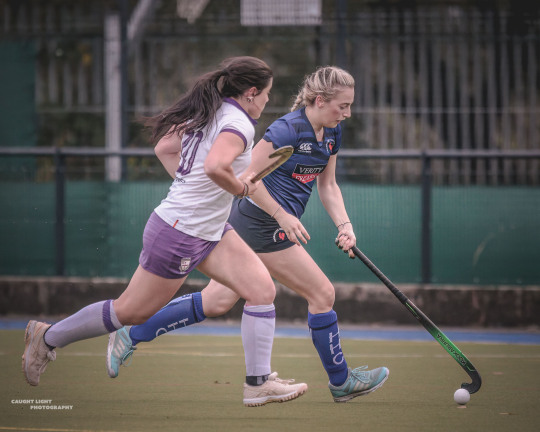

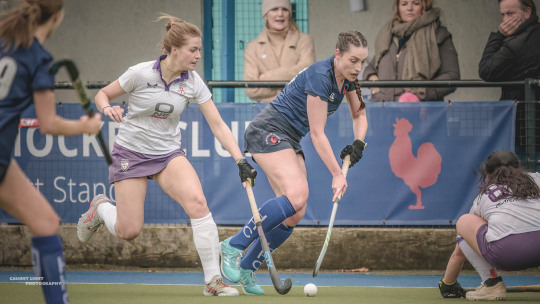


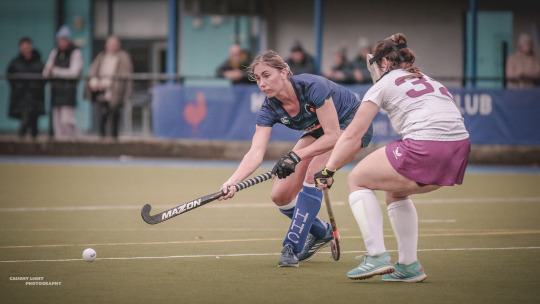



Losing 2-1 at half time, Harrogate Ladies 1s pressed hard to find the equaliser and it came near the end of the game; and the sense of relief was palpable.
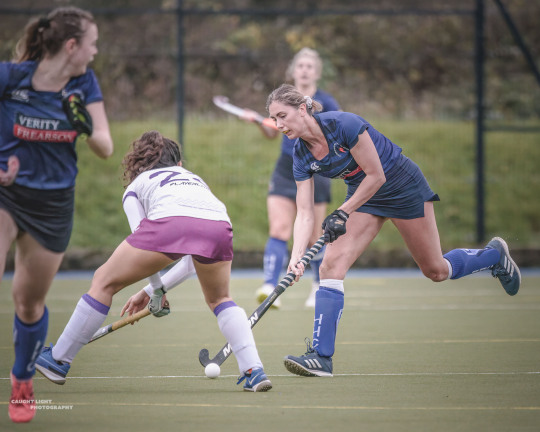
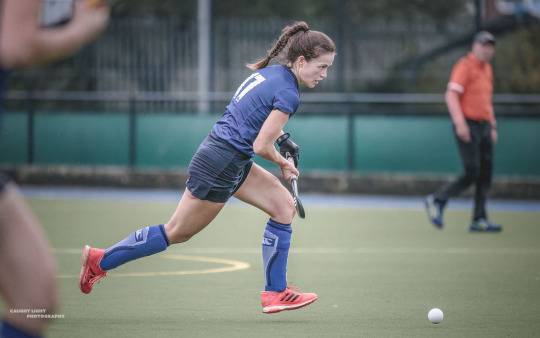

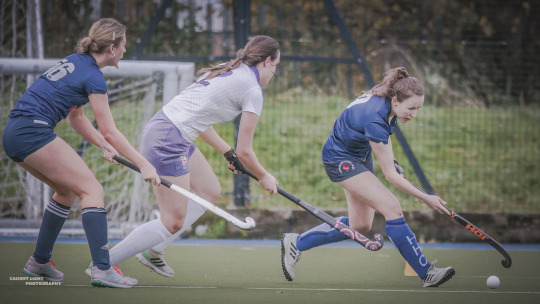




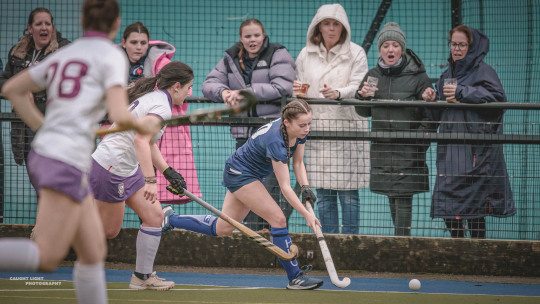
Any thoughts that they would be happy to share the points were dispelled quickly as the home team pressed forward to find the winner.
It was to come in the form of a penalty, awarded with only a few minutes to go. It was Lucy Wood who stepped up to take it, and knowing how accurate the Harrogate forward has been over the years...the outcome was never going to be in doubt! The Ladies 1s had a 3-2 lead with seconds left on the clock.


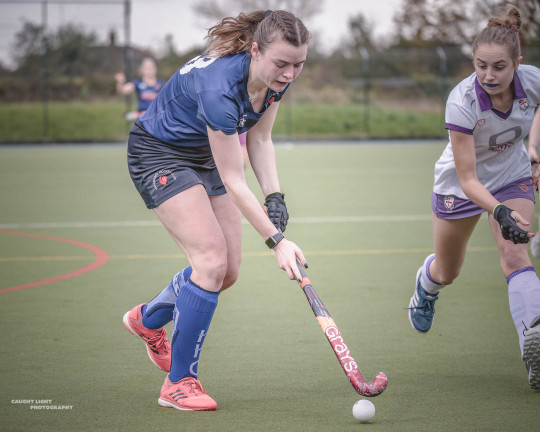
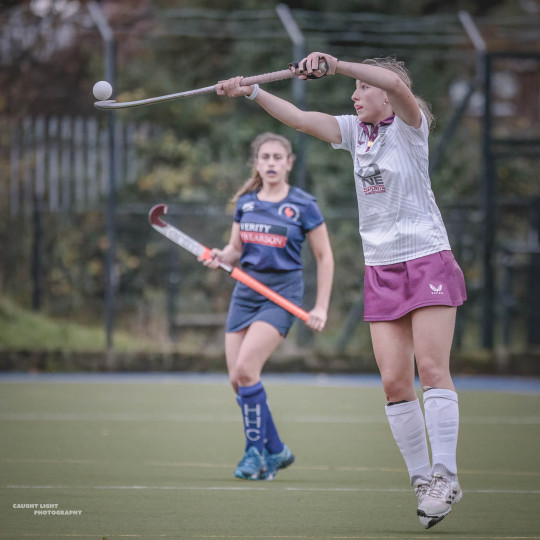
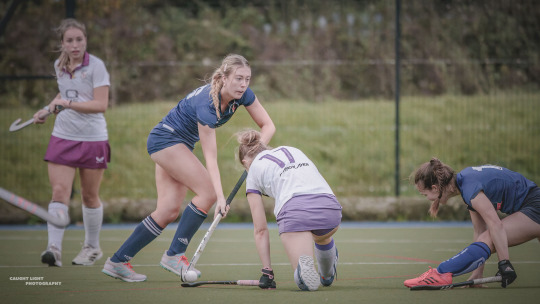



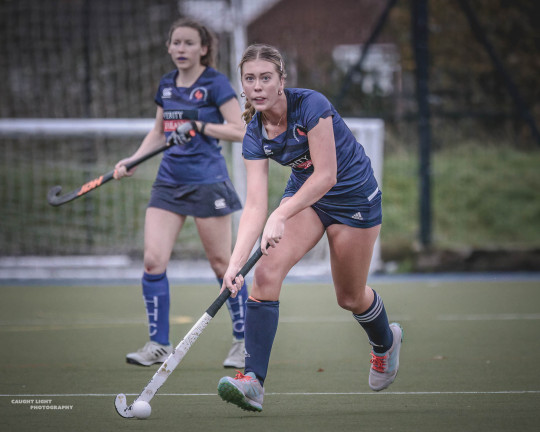
Durham weren't finished and in the final moments of the game pushed forward to try and get the equaliser. As the final whistle was about to go, they earned a short corner...the ball was fired in on target but the Harrogate keeper, Lily Sowray, was able to kick the ball away, the whistle blew and the home team had won the close-fought game.
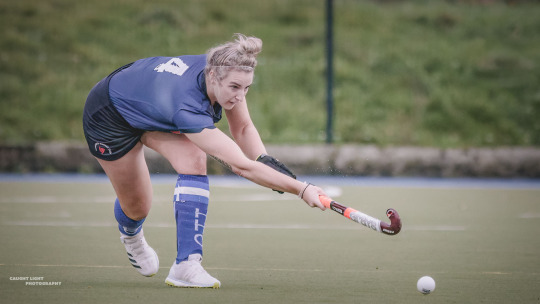

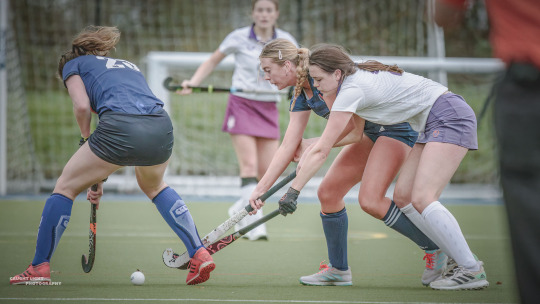
#Hockey#Harrogate#North Yorkshire#Yorkshire#England Hockey#League#Durham#Durham University#Photography#Sports Photography#Sport
0 notes
Text
We are Helping students in their exams, Final Year Projects, Thesis, Individuals and Group Assignments just in Cheap Price.WhatsApp # +923441653963

#university of edinburgh#durham university#university of manchester#imperial college london#kingston university london#banuuniversity#Cambriage University#england#uk lesbian#usa#britain#london#united kingdom
0 notes
Link
0 notes
Text
The USA’s 05 least Visited destinations, Put this mesmerizing places to your bucket list.
The USA’s 05 least Visited destinations, Put this mesmerizing places to your bucket list.
The USA has a significant domestic tourism industry, making it one of the most visited countries in the world. Some of the most popular American national tourist destinations include Disney World, Time Square, Yellowstone National Park, LA, Washington, DC, and Yosemite National Park.
All of the venues are frequented by people. We can recommend the top 05 least visited tourist destinations in the…

View On WordPress
#americinn tofte#buffalo#buffalo america#buffalo new york#buffalo to new york city#buffalo usa#cabins in the ouachita mountains#camping near white sands national park#city in usa#city of buffalo#downtown buffalo#durham#durham accommodation#durham cathedral#durham law#durham university#durham university accommodation#durham university open days#lake superior#lake superior depth#lake superior state park#larsmont cottages#lutsen resort#museums in nyc#new york#new york to buffalo#north shore lake superior#nyc#ouachita mountains#ouachita mountains ar
0 notes